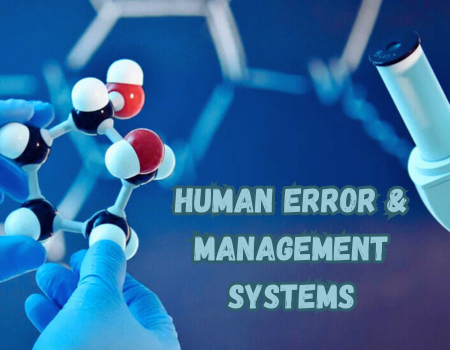Human Error and Management Systems: Designing Errors Out
Speaker: Ginette Collazo, Ph. D
Speaker Designation: CEO, Human Error Solutions

Speaker: Ginette Collazo, Ph. D
Speaker Designation: CEO, Human Error Solutions

If you work in the GMP-regulated industry, you not only need to address human error deviations because they are an inconvenience, but you must also do it because the regulation requires it. The CFR - Code of Federal Regulations Title 21 Subpart B_Organization and Personnel Sec. 211.22 talks about the “Responsibilities of the quality control unit.” and it states that “(a) There shall be a quality control unit that shall have the responsibility and authority to approve or reject all components, drug product containers, closures, in-process materials, packaging material, labeling, and drug products, and the authority to review production records to assure that no errors have occurred or if errors have occurred, that they have been fully investigated.” Human Error is NOT a root cause. Human errors start at the design stage. Many variables that affect human behavior can be controlled by procedures, training, workplace environment, and more importantly, MANAGEMENT SYSTEMS, reducing the likelihood of these occurrences. To work with these challenges, it is essential to understand human behavior and the psychology of error and implement a process exclusively dedicated to investigating and “fixing” these problems. This course offers practical approaches and models to address human performance issues in GMP-related environments by using a particular methodology to correct, prevent and avoid the reoccurrence of these matters.
We need to be able to explain human behavior. Did the human fail because process weaknesses set them for failure? Do procedures provide all information and indicate critical steps and warnings or cautions associated with steps? Do systems work for manufacturing, or is it the other way around? These are all tough questions to ask, but most importantly, to answer. This training would provide tools to implement and use after this event. These include practical tools. We will discuss human error categories, near root causes, and root causes for these events. We will discuss the latest trends in human error issues in the industry
Human error is inevitable but manageable. By designing systems that anticipate and mitigate the potential for mistakes, organizations can improve safety, efficiency, and reliability. The integration of error-proofing principles, human-centered design, and a supportive culture creates resilient systems where the impact of human error is minimized, leading to better outcomes across industries.
This webinar will be available soon. Please contact customer care for new schedule date.

Ginette Collazo, Ph. D. is an Industrial-Organizational Psychologist with more than 20 years of experience specializing in Engineering Psychology and Human Reliability. These disciplines study the interaction between human behavior and productivity. She has held positions leading Training and Human Reliability programs in the Pharmaceutical and Medical Device Manufacturing Industry.
In 2009, Dr. Collazo established Human Error Solutions (HES), a US-based boutique consulting firm. She has positioned herself as one of the few Human Error Reduction Experts worldwide. HES, led by Dr. Collazo, developed a unique methodology for human error investigations, cause determination, CA-PA development, and effectiveness implemented and proven amongst different industries globally. Furthermore, this scientific method has been applied in critical quality situations and workplace accidents. As a GMP expert also has a Keynote Speaker at significant events around the world.
Ginette Collazo, Ph. D., is the author of several books, “Human Error: Root Cause Determination Model” and “Mission Matters: World Leading Entrepreneurs Reveal their Top Tips to Success.” Also, she is the host of The Power of Why Podcast. A show about human behavior in the workplace and critical thinking.
FDAnews has called her a “veteran of helping drug, biologic and device firms reduce manufacturing errors,” and the Caribbean Business describes her as “ the missing link in modern business.” Today her Error Reduction System has been implemented in all types of industries worldwide.